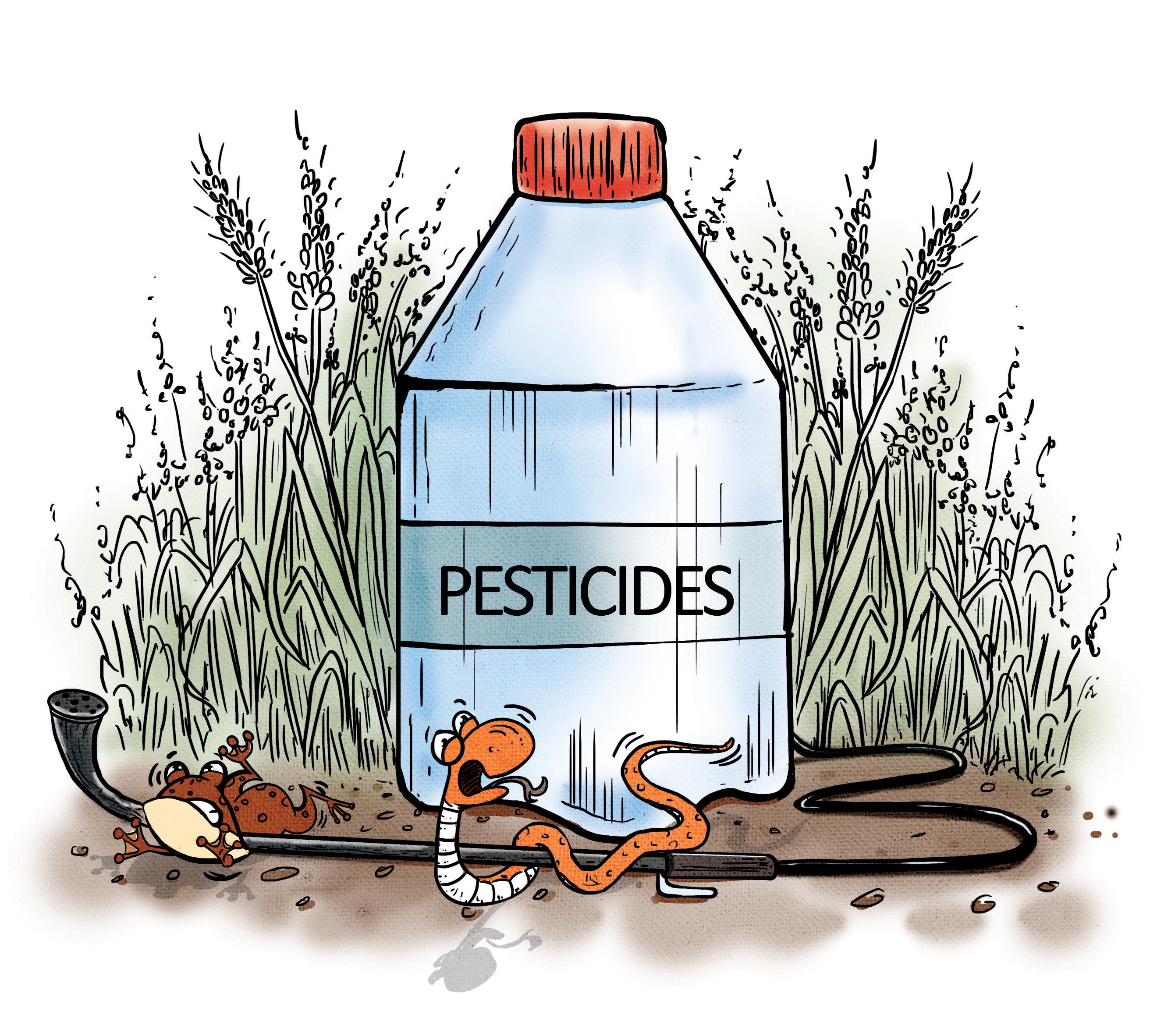Killed in cold blood
Down To Earth
|January 01, 2023
Surveys quantify the impact of crop intensification on frogs and reptiles; say loss of species and farm productivity inevitable

THE DEMAND for land for food production always results in an uncomfortable trade-off between agricultural expansion and species conservation. One can see an example of this tradeoff in paddy fields, whose unique combination of wet and drylands provide ideal habitats for amphibians and reptiles. These cold-blooded animals, together referred to as herpetofauna, provide immense ecological services. Frogs and toads, for instance, act as biological control agents by feeding on crop pests. Several salamanders and tadpoles of frogs help in controlling mosquito and mosquito-borne diseases by feeding on the larvae. They also help improve soil quality and aeration, aid in dispersal of seeds and in pollination-there are almost 40 species of lizards including skinks and geckos that are efficient pollinators. However, the diversity and abundance of these herpetofauna are rapidly declining with increased use of pesticides, fertilisers, land conversion, changes in cropping systems and the reduced proportion of natural vegetation. According to the International Union for Conservation of Nature (IUCN), 1,532 species of Anurans (frogs) and 825 species of reptiles in the world are critically endangered, endangered and vulnerable due to agriculture and its management practices. They appear to particularly threatened in India which has a high amphibian diversity-most of them are endemic to the region-and, as per the UN Food and Agriculture Organization, had the largest cropland area over the last decade, followed by the US and China.
This story is from the January 01, 2023 edition of Down To Earth.
Subscribe to Magzter GOLD to access thousands of curated premium stories, and 10,000+ magazines and newspapers.
Already a subscriber? Sign In
MORE STORIES FROM Down To Earth

Down To Earth
KING OF BIRDS
Revered for centuries, western tragopan now needs protection as its forests shrink, human pressures mount
3 mins
December 16, 2025

Down To Earth
WHISKERS ALL AQUIVER
Climate change threatens creatures that have weathered extreme environments for thousands of years
2 mins
December 16, 2025

Down To Earth
GOLDEN SPIRIT
Survival of the shy primate is closely tied to the health of Western Ghats
3 mins
December 16, 2025

Down To Earth
RINGED EYES IN THE CANOPY
Rapid habitat destruction forces arboreal langur to alter habits
2 mins
December 16, 2025

Down To Earth
HANGING BY THE CLIFF
The Himalaya's rarest wild goat is on the brink of local extinction
2 mins
December 16, 2025

Down To Earth
ANGEL OF THE BEAS
Conservation reserves, citizen science, and habitat protection give the Indus River dolphin a fighting chance in India
2 mins
December 16, 2025

Down To Earth
UNDER MOONLIT SCRUB
Survival of this hidden guardian tells us whether our scrublands still breathe
2 mins
December 16, 2025

Down To Earth
SYMBOL OF SILENT VALLEY
Lion-tailed macaque remains vulnerable despite past victories
2 mins
December 16, 2025

Down To Earth
THE APE IN OUR STORIES
India's only non-human ape species is a cultural icon threatened by forest fragmentation
2 mins
December 16, 2025

Down To Earth
SENTINEL OF THE HIGH COLD DESERT
The bird's evocative call may not continue to roll across the cold desert valley for long
3 mins
December 16, 2025
Translate
Change font size

